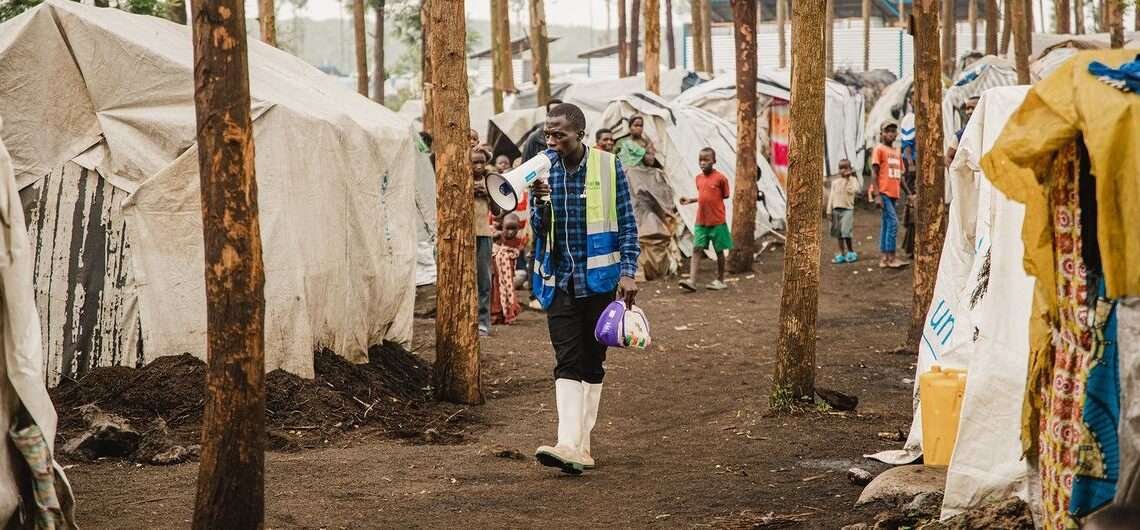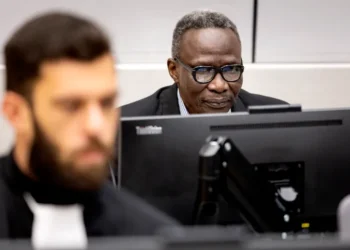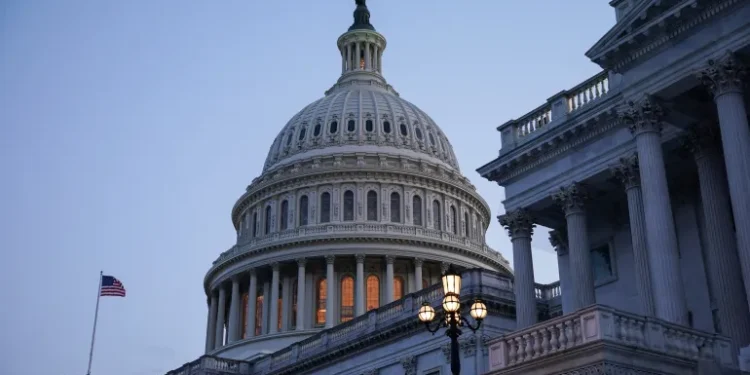The security situation in the eastern Democratic Republic of the Congo (DRC) has reached a critical point, characterized by severe violence and mass civilian displacement, according to a recent report by the United Nations.
On Monday, July 8, Bintou Keita, the UN Special Representative for the DRC, presented a grim update to the Security Council, highlighting the deteriorating conditions in the region.
Ms. Keita, who also leads the UN peacekeeping mission in the DRC (MONUSCO), shared details of a recent attack on the residence of a Congolese politician. This incident resulted in the death of two police officers, underscoring the volatile security environment.
The rapid expansion of the armed group Mouvement du 23 mars (M23) in the provinces of North and South Kivu has been particularly alarming.
In the past fortnight, M23 has captured strategic locations in North Kivu, including Kanyabayonga, Lubero, and Rutshuru territories.
Their latest offensive saw the burning of several bases of the DRC Armed Forces (FARDC), which has led to further displacement and exacerbated the already dire humanitarian and human rights situation.
Civilian casualties and injuries have mounted, and the attacks have intensified communal tensions. Ms. Keita warned that “the rapidly escalating M23 crisis carries the very real risk of provoking a wider regional conflict.”
A sharp rise in sexual and gender-based violence further compounds the situation.
In 2023 alone, 122,960 cases were reported, marking a 3% increase from the previous year. Women and girls constitute nearly 90% of these cases, with incidents of sexual violence against children surging by 40%.
Ms. Keita emphasized that these figures are just “the tip of the iceberg,” as many cases go unreported. She cautioned that 2024 could see even higher numbers of gender-based violence if the current trends continue.
The humanitarian crisis in the DRC is among the most severe, complex, and neglected in recent times.
Ms. Keita noted that the escalating violence in the east continues to drive massive population displacements, worsening an already catastrophic humanitarian situation.
Approximately 7.3 million people are currently displaced within the country, with the majority residing in the east. The proximity of conflict frontlines and the presence of heavy weaponry around displacement camps complicate humanitarian efforts.
Ms. Keita called on Member States and regional organizations to intensify their political and regional engagement to alleviate humanitarian suffering.
She urged them to address the root causes of the conflicts fueling the dramatic increase in humanitarian needs.
Rwanda’s Presence In DRC
A recent UN report has further complicated the situation, revealing that between 3,000 to 4,000 Rwandan soldiers have been fighting alongside M23 rebels in eastern DRC.

The report, commissioned by the UN Security Council, highlights Rwanda’s significant control over the rebel group’s operations, holding Kigali accountable for the actions of M23.
Despite Kinshasa’s accusations of Rwanda backing the Tutsi-led M23 rebel group, Kigali has yet to confirm these claims officially.
However, the UN report asserts that the Rwandan army’s “de facto control and direction over M23 operations” makes the country “liable for the actions of M23.”
The report details the RDF’s military interventions and operations in North Kivu territories, including Nyiragongo, Rutshuru, and Masisi, which were crucial to M23’s territorial gains between January and March 2024.
The findings are backed by authenticated photographs, drone footage, video recordings, testimony, and intelligence, all confirming systematic border incursions by the RDF.
Footage and photographs show rows of armed men in uniform, equipped with artillery, armored vehicles with radar and anti-aircraft missile systems, and trucks for troop transport.
Until the end of 2023, Rwandan authorities publicly denied their troops’ involvement alongside M23 rebels in North Kivu.
However, since then, Kigali has refrained from commenting directly on such accusations.
READ ALSO: Ghana’s T-Bill Auction Raises GH¢3.34bn Amid Falling Interest Rates





















